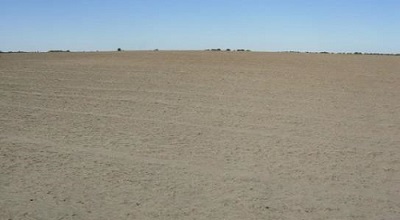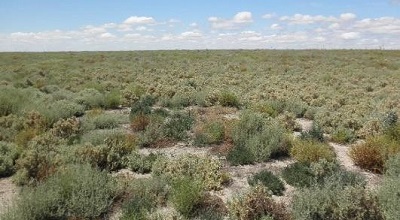As agribusiness works to meet the increased demand for food and fibre from a growing population, an innovative use of technology, science and environmental accounting is helping shape the future of impact investing.
The use of environmental accounting
Environmental accounting in agribusiness can shape the future for sustainable food and agriculture. As a sector, agribusiness has attractive thematics that are uncorrelated to traditional asset classes. The compelling combination of technology, science and environmental assessment is enabling operators to track the health and condition of natural assets, such as soil, water and native vegetation. This monitoring ability is invaluable in informing management decisions to deliver long-term sustainable food and fibre to customers and long-term value to investors.
Benchmark assessment of natural assets to grasp trends in environmental conditions began at Kilter Rural on a large scale Victorian commercial farming operation in 2008. More than a decade later, this farmland and ecosystem operation has successfully developed Australia’s first farm-level environmental condition account. This innovative approach to agribusiness needs to become mainstream, as ongoing agriculture sustainability is an undoubted global necessity.
By 2050 the world is expected to feed 50% more people. However, increased production must be delivered in the context of diminishing arable land, reduced available water and the declining health of supporting ecosystems.
The next 30 years will demand significant improvement to the condition of these underpinning and irreplaceable natural resources, and agribusiness is central to the sustainable management of impact investments in these assets.
Recasting the balance between production and ecosystem protection will drive transformation to highly productive, sustainable farmlands. Accounting for improvement in the condition of natural assets is a much-needed component in sustainable agribusiness.
Accounting for nature
In environmental accounting, natural assets are physical landscape elements such as water, soil and native vegetation, of which key condition attributes are measured and then formally reported. Measuring the commercial performance of an agricultural operation has long been routine. Until recently, finding a rigorous, independent methodology to measure the condition, or management performance, of natural assets has been problematic.
In 2008, the Australian-based Wentworth Group of Concerned Scientists first proposed its Accounting for Nature framework, a scientific method for constructing natural asset condition accounts. The framework supports the goal of this independent science-based organisation to find, implement and drive solutions for environmental stewardship to secure the long-term health of Australia’s land, water and biodiversity.
In the past three years, we have implemented a farm-scale trial of the framework on farmland and ecosystems managed for wholesale investors.
Unpacking the accounts
The Accounting for Nature model requires an environmental asset condition account to be accredited by an appropriate scientific body against a set of agreed national environmental asset condition accounting standards. The framework captures the biophysical condition of environmental assets by adoption of an agreed standardised unit, known as the Econd. Each asset is scored an Econd value, a calculated score between 0 and 100, with 100 representing pristine or ‘reference’ condition.
For farmland assets, target Econd scores are also established to reflect tangible goals within the farming context. Then annual accounts track progress towards these goals through ongoing measurement of primary asset condition indicators.
Improvement in Econd scores reflect a gradual improvement in asset condition, such as:
- through an increase in the extent and/or quality of native vegetation across the farming landscape, and
- improved soil condition through active soil amelioration in agricultural production areas, as well as natural gradual improvement of soils under regenerating native vegetation.
Improvement in asset condition
Our environmental accounting process has quantified improvement in the natural assets on the 9000ha farmland under its management between 2007 and 2018, such that:
- Soil condition has improved from an Econd score of 50 to 60 towards the 2022 aspirational goal.
- Vegetation condition has nearly doubled from an Econd score of 11 to 20, or 90% improvement towards the 2022 goal.
Improvement is evidenced in photos that have been periodically retaken from specific points in the landscape, known as photopoints.

2009

2017
Why it works and why it’s needed
Protecting and enhancing natural ecosystems should be viewed as another form of primary production. This not just in the context of their intrinsic value, as healthy ecosystems fundamentally underpin long-term agribusiness output. Environmental condition accounts add significant value by informing management responses for improved ecosystem health.
The Accounting for Nature framework provides landscape managers with an approach that moves environmental condition assessments into the contemporary age of knowledge, rigour and accountability. Broad implementation of the accounts will reveal what is sustainable in farmland, water and ecosystem management.
In addition to supporting sustainable production, the condition accounts give transparency to investors seeking to measure ‘environmental impact’ at a granular landscape level. Implementing the accounts gives truth to the adage what matters gets measured.
Cullen Gunn is the CEO of Kilter Rural. Kilter Rural has been managing institutional-grade impact investments in farmland, water and ecosystems for more than 14 years. Wholesale investors can find more information on the Australian Farmlands Fund, Balanced Water Fund or Kilter Water Fund on their website.